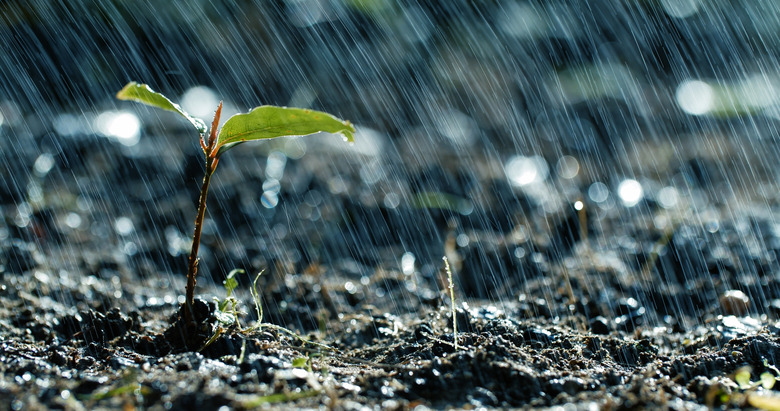Plants Actually Panic When It Rains
When you look outside and see it's raining, you may be glad you don't have to water the plants in the garden – and you probably assume they're enjoying the rain. But new research reveals that plants enter a state of panic during the rain, despite needing water to survive.
Wait, What? Why are plants afraid of water?
Wait, What? Why are plants afraid of water?
Since plants must have water to thrive, many people assume that they love the rain. Although water is an essential part of their ecosystems, plants have an unusual reaction to rain. Researchers at the University of Western Australia's School of Molecular Sciences, Lund University and Australian Research Council Centre of Excellence in Plant Energy Biology investigated this reaction.
"As to why plants would need to panic when it rains, strange as it sounds, rain is actually the leading cause of disease spreading between plants. When a raindrop splashes across a leaf, tiny droplets of water ricochet in all directions. These droplets can contain bacteria, viruses or fungal spores. A single droplet can spread these up to 10 meters to surrounding plants," said Harvey Millar, a professor at the University of Western Australia.
Researchers discovered that the Myc2 protein starts a chain reaction in plants that involves thousands of genes and hundreds of other proteins. This activates a plant's defense system through a series of chemical signals, which allows it to prepare for potential diseases. Some of the signals delay the plant's ability to flower, or they slow down its growth.
The Spread of Plant Diseases
The
Spread of Plant Diseases
Rain can spread viruses, fungi, bacteria and parasites over long distances. Since plants lack the ability to move and seek shelter, they're vulnerable to a variety of pathogens. For example, fungal spores can travel from plant to plant because of water splashing from the rain. When the fungi land on a leaf in a water droplet, they can infect a new plant.
Researchers at the University of Liege and MIT studied why plant diseases seem to start after rainstorms. They learned that rain falling on contaminated leaves can spread pathogens to other leaves and plants. Their findings may eventually help farmers and gardeners change their planting strategies to reduce the spread of disease.
"We can start thinking of how to smartly reinvent polyculture, where you have alternating species of plants with complimentary mechanical properties at various stages of their growth. Polyculture is an old concept if you look at native cultures, but this is one way to scientifically show that by alternating plants in one field, you can mechanically and naturally reduce the range of transmission of a pathogen during rainfall," said MIT professor Lydia Bourouiba.
Sending a Warning
Sending
a Warning
When a chain reaction starts in a plant in response to the rain, it also releases the jasmonic acid hormone that can warn other plants about the danger. The hormone acts as a signaling mechanism. Although it may seem odd that a plant would want to warn others about the rain and possible danger of pathogens, it makes sense if you consider the ecosystem.
A shrub that can warn other plants about danger helps itself during the process. If the other plants start their own chain reactions to defend against potential pathogens, then it will keep the entire area healthier, and the shrub avoids getting pathogens. Any plant that suffers from a disease is in a weaker state and could become infected with other fungi, bacteria or viruses, which would pose a danger to the shrub.
By understanding how plants react to rain and other parts of their environment, researchers hope to improve crops and other plants that humans need to survive.
Cite This Article
MLA
Bandoim, Lana. "Plants Actually Panic When It Rains" sciencing.com, https://www.sciencing.com/plants-panic-during-rain-13722911/. 15 November 2019.
APA
Bandoim, Lana. (2019, November 15). Plants Actually Panic When It Rains. sciencing.com. Retrieved from https://www.sciencing.com/plants-panic-during-rain-13722911/
Chicago
Bandoim, Lana. Plants Actually Panic When It Rains last modified March 24, 2022. https://www.sciencing.com/plants-panic-during-rain-13722911/
